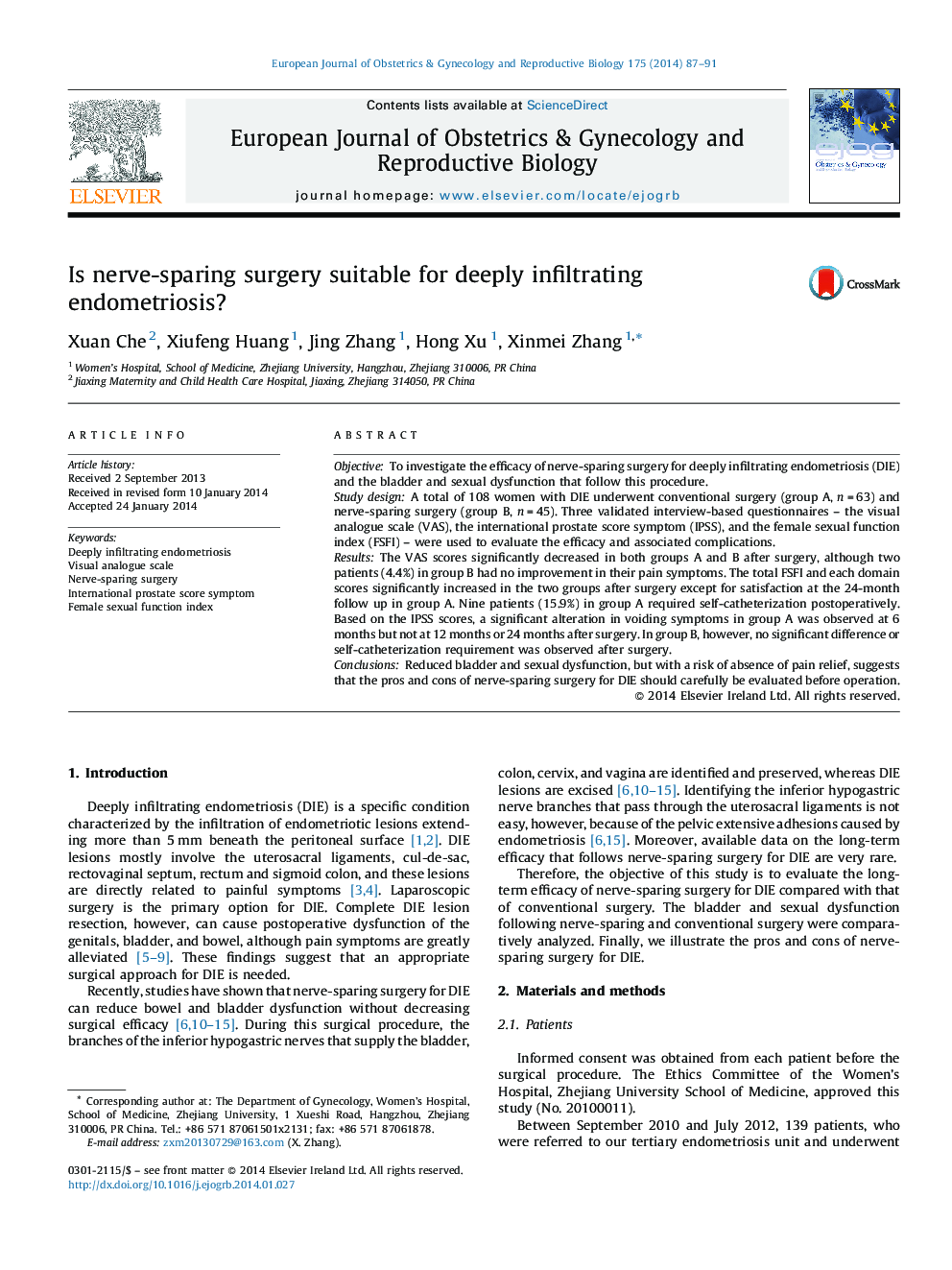| کد مقاله | کد نشریه | سال انتشار | مقاله انگلیسی | نسخه تمام متن |
|---|---|---|---|---|
| 6173949 | 1599806 | 2014 | 5 صفحه PDF | دانلود رایگان |
ObjectiveTo investigate the efficacy of nerve-sparing surgery for deeply infiltrating endometriosis (DIE) and the bladder and sexual dysfunction that follow this procedure.Study designA total of 108 women with DIE underwent conventional surgery (group A, n = 63) and nerve-sparing surgery (group B, n = 45). Three validated interview-based questionnaires - the visual analogue scale (VAS), the international prostate score symptom (IPSS), and the female sexual function index (FSFI) - were used to evaluate the efficacy and associated complications.ResultsThe VAS scores significantly decreased in both groups A and B after surgery, although two patients (4.4%) in group B had no improvement in their pain symptoms. The total FSFI and each domain scores significantly increased in the two groups after surgery except for satisfaction at the 24-month follow up in group A. Nine patients (15.9%) in group A required self-catheterization postoperatively. Based on the IPSS scores, a significant alteration in voiding symptoms in group A was observed at 6 months but not at 12 months or 24 months after surgery. In group B, however, no significant difference or self-catheterization requirement was observed after surgery.ConclusionsReduced bladder and sexual dysfunction, but with a risk of absence of pain relief, suggests that the pros and cons of nerve-sparing surgery for DIE should carefully be evaluated before operation.
Journal: European Journal of Obstetrics & Gynecology and Reproductive Biology - Volume 175, April 2014, Pages 87-91
